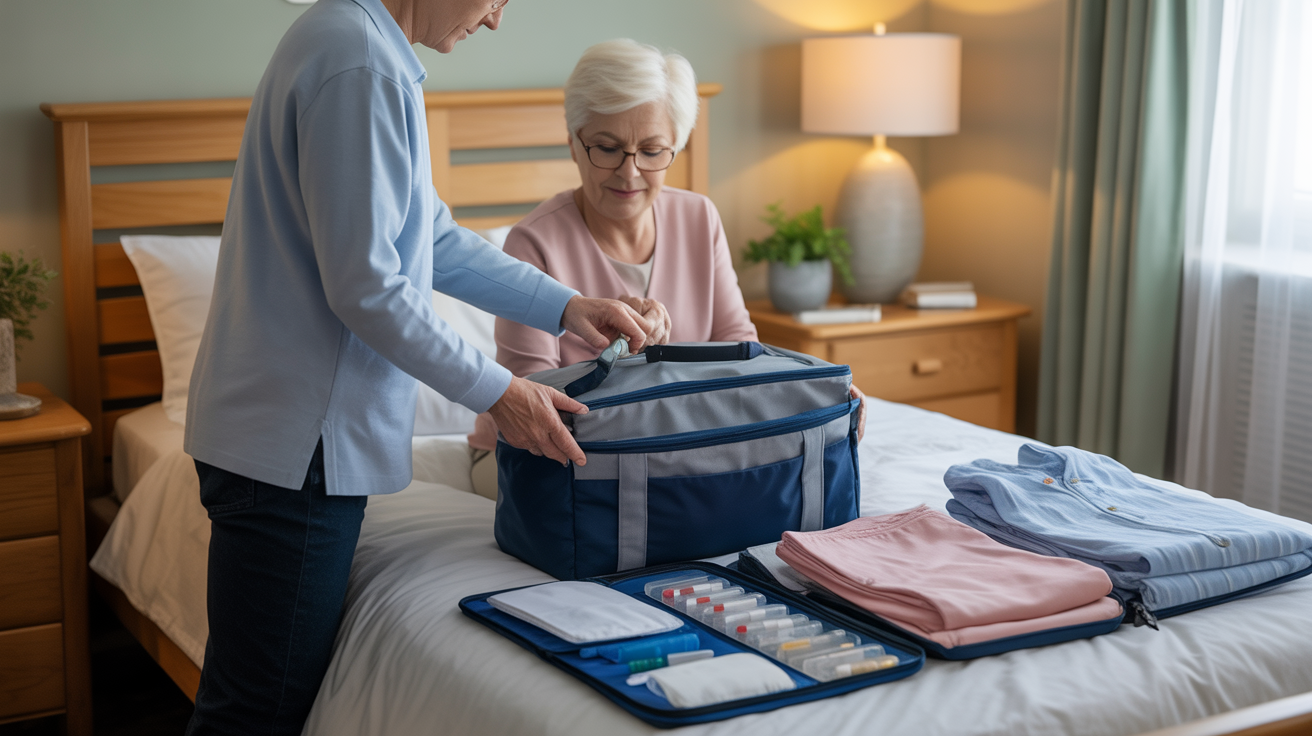Packing Hospital Bags for the Elderly: A Compassionate Guide
Heading to the hospital can be stressful for anyone—but for older adults, the experience often brings extra layers of worry: Will they have their favorite sweater? Will their medications be organized? Will they feel as comfortable and dignified as possible? As a caregiver, you can ease that anxiety by thoughtfully preparing their hospital bag. Here’s a humanized, room-by-room checklist to guide you through the process.
PERSONALIZED CARE
Erlyn A. Pinkston
8/4/20252 min read


Why a Senior-Friendly Hospital Bag Matters
Hospital stays disrupt routines—meal times, sleep, even the simple comfort of home slippers. For an older loved one, these changes can spark confusion or fear. A well-packed bag:
Restores a sense of familiarity
Reduces anxiety around the unknown
Keeps essential items at hand (especially medications!)
Honors their comfort and dignity
Room-by-Room Packing Plan
1. The Essentials Pouch
Medications & Documents
Medication organizer: Pre-fill a dated pill case with all doses for at least three days.
Original medication bottles: In case the pharmacist or hospital staff need to verify dosages.
Health documents: A waterproof folder containing ID, insurance cards, advance directives, and a brief care summary.
Tip: Keep this pouch inside a clear, zip-lock bag so nurses can quickly spot it on arrival.
2. Comfort Corner
Clothing & Linens
Comfortable clothes: Soft, loose-fitting garments—like a zip-front cardigan or elastic-waist pants—that are easy to put on and remove.
Non-skid socks or slippers: To prevent slips in hallway walks or bathroom visits.
Light throw or shawl: A favorite blanket or warm scarf brings a touch of home and extra warmth.
3. Essentials Flat-Lay
Toiletries & Personal Items
Moisturizing lotion and lip balm: Hospital air can be very drying.
Toothbrush, toothpaste, and mouthwash: Small travel-size bottles are ideal.
Comb or hairbrush: A simple grooming tool can boost morale.
Glasses and case: Plus an extra set of contacts or hearing-aid batteries if used.
4. Entertainment & Connection
Items to Nourish the Heart
Reading material: A large-print book, crossword puzzle book, or magazine they love.
Device with charger: Pre-load audiobooks, music playlists, or a video-call app to stay connected with family.
Photo album or framed picture: A small, lightweight album of grandkids or cherished memories can spark joy and conversation.
5. Nightstand Necessities
Hydration & Snacks
Reusable water bottle: Fill it before you arrive to avoid hospital machine noise.
Healthy snacks: Individually wrapped crackers, granola bars, or nuts to tide them over between meals.
Notebook and pen: For jotting down questions for doctors or recording daily health notes.
Final Tips for a Smooth Departure
Label everything with their name in permanent marker or pre-printed tags.
Pack early—ideally 24–48 hours before a scheduled admission—so you’re not rushing.
Do a quick review an hour before leaving: check that medications, documents, and favorite comfort items are inside.
You’re not just packing a bag. You’re packing calm, confidence, and care. When you organize these thoughtful touches, you transform a hospital stay into a more comforting chapter of healing—one where your elderly loved one still feels at home.


Our Links
Mailing Address
P.O. Box 115 Garden Grove
CA 92842-115
